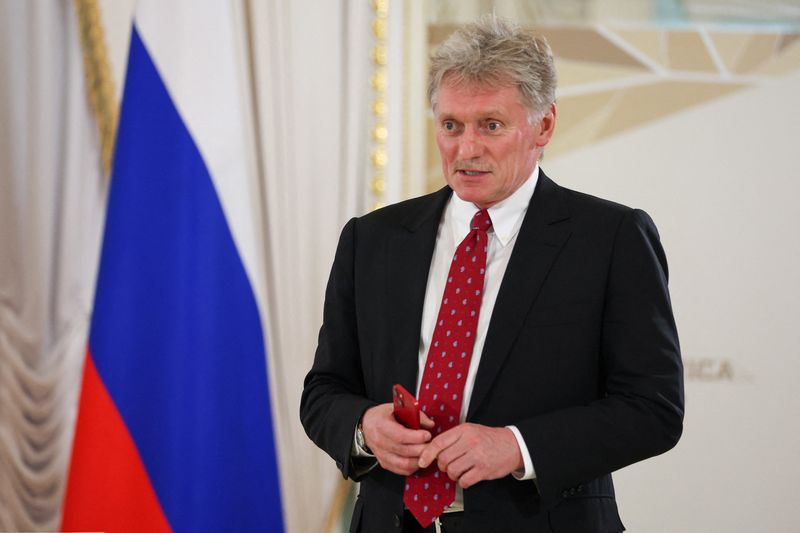MOSCOW (Reuters) - The passage of a second ship from Ukraine along a temporary Black Sea corridor has nothing to do with the prospects for reviving a grain deal involving Russia, Kremlin spokesman Dmitry Peskov said on Monday.
Kyiv said on Sunday a vessel carrying steel products to Africa had left Ukraine's port of Odesa through a temporary "humanitarian" corridor in the Black Sea, the second ship to do so since Russia withdrew last month from a U.N.-brokered deal that had allowed for grain to be safely exported.
At a regular Kremlin briefing, Peskov reaffirmed Moscow's stance that reviving the grain deal would depend on whether the West delivered on promises regarding Russia's own grain and fertiliser exports.
"The prospects for the renewal of the grain deal depend on the actual implementation, not just in words, of the promises, the pledges given to the Russian side, which means implementing the part of the deal pertaining to Russia," Peskov said.
Russia's grain and fertiliser exports are not subject to sanctions imposed by the West on Moscow over its military actions in Ukraine. But Russia says restrictions on payments, logistics and insurance have remained a barrier to shipments.
Kyiv announced the "humanitarian corridor" in the Black Sea earlier this month to release cargo ships that have been trapped in its ports since Russia sent tens of thousands of troops into Ukraine on Feb. 24, 2022.
"That (temporary corridor) is a totally different matter, (to the grain deal) and our defence ministry is monitoring it as necessary," Peskov said.

Russia has carried out a series of missile and drone strikes on Ukrainian ports since letting the grain deal expire. Kyiv has responded with sea drone attacks on Russian warships near a key Russian port and a Russian tanker near Crimea.
Ukraine and Russia are both leading grain exporters. Nearly 33 million tonnes of Ukrainian grain was exported during the year that the Black Sea deal was in operation.